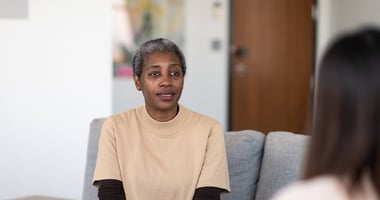Psychiatrists Offer 5 Strategies for Integrating Videoconferencing Into OCD Treatment

People with obsessive-compulsive disorder (OCD) can benefit from medication and/or psychotherapy that teaches them to confront situations that trigger obsessive fears while refraining from performing compulsions. Yet, for many with OCD, these therapies may be out of reach due to therapists’ availability, cost, location, and more.
“Increasing evidence suggests that digital health technologies, including videoconferencing and other approaches (for example, online platforms, websites, and mobile applications) can circumvent these barriers,” wrote Reilly R. Kayser, M.D., of Columbia University’s Vagelos College of Physicians and Surgeons and colleagues in an article in Psychiatric Services in Advance.
One evidence-based treatment for OCD is exposure with response/ritual prevention (EX/RP)—a standardized treatment in which patients are encouraged to gradually approach feared stimuli through real-life and imagined exposures. Drawing from their experience at Columbia’s Center for OCD and Related Disorders, Kayser and colleagues describe five potential strategies for integrating videoconferencing into OCD treatment, including advantages and challenges of each approach:
Hybrid EX/RP: Beginning EX/RP treatment in person enables therapists to establish the therapeutic alliance with the patient, supervise patients’ successful completion of exposures before practicing them independently, and overall progress. Videoconferencing offers patients and therapists the ability to adapt when a patient moves, becomes ill, or other unexpected life events occur. When transitioning to remote treatment, it is important that therapists obtain informed consent and review with the patient the treatment model as well an overview of how the videoconferencing software works. “Licensure issues may occur with relocations, requiring clinicians to obtain limited permits or arrange local referrals,” they wrote.
Fully remote EX/RP: Patients who are homebound, live far from OCD treatment facilities, and/or feel significant shame about their symptoms may “find videoconferencing more tolerable than office-based care and may more readily seek remote treatment,” the authors continued. However, there are challenges to this approach: “A therapist might observe a patient’s engagement in safety behaviors onsite, but these may be less obvious over videoconferencing, limiting opportunities for corrective feedback. … Fully remote treatment may be inappropriate when patients struggle with adherence, have certain comorbid conditions (for example, psychosis, severe personality disorders), or face immediate safety concerns (for example, suicidality).”
Videoconferencing-assisted psychopharmacology: In some situations, medications may be the first-line therapy for patients with OCD, the authors noted. Videoconferencing can expand “expert pharmacological consultation and treatment beyond metropolitan centers (where most specialty programs are located).” Potential challenges to this approach include licensure and/or medication supply issues and the inability to perform a physical exam of the patient.
Virtual support groups: There is evidence to suggest that OCD support groups may reduce loneliness, isolation, and stigma while reinforcing cognitive-behavioral therapy techniques. Virtual support groups have the advantage of allowing patients to see each other without the logistical challenges of in-person meetings. “We recommend groups with trained moderators to ensure that treatment does not inadvertently reinforce accommodation of symptoms or avoidance,” they wrote.
Videoconferencing-assisted clinical supervision: Videoconferencing can also be used to facilitate and increase access to clinical supervision. “Similar to traditional supervision, online software allows supervisors to view trainees’ recorded treatment sessions and provide retrospective feedback. Supervisors can also passively view sessions with video or audio disabled, activating video or audio at key moments to provide real-time feedback.”
The authors concluded, “Although digital health technologies such as videoconferencing are unlikely to replace in-person OCD treatment, they are quickly becoming important tools to increase access and improve care for this debilitating, undertreated condition.”
For related information, see the Psychiatric News article “How Are OCD Patients Coping With COVID-19?”
(Image: iStock/izusek)
Help APA Fight for Improved Reimbursement: Take Insurance Survey
APA advocates on behalf of psychiatrists to increase reimbursements from health plans, legislators, and regulatory agencies. To ensure APA is well equipped to fight for improved payment for clinical services, we need to know more about the nature of your outpatient practice and experience in the health plan networks in which you participate.
Don't miss out! To learn about newly posted articles in Psychiatric News, please sign up here.






